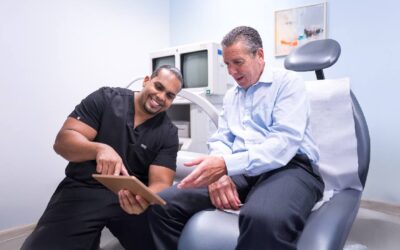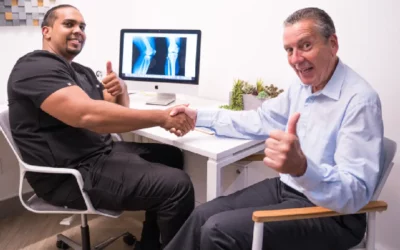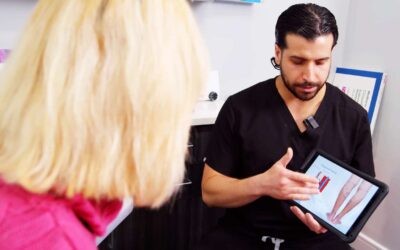What Are These Purple Veins on My Legs? How to Identify Vein Problems
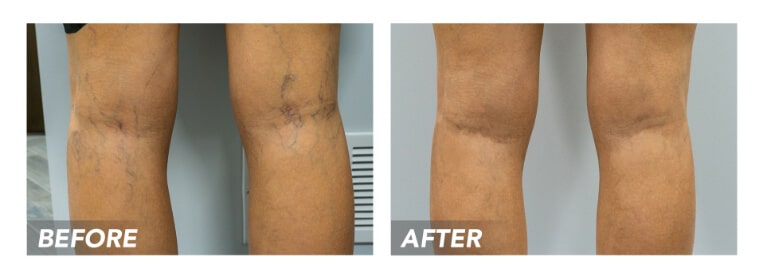
What are these purple veins on my legs? They might be swollen varicose veins or spider veins!
If you have noticeable purple veins on your legs, you may be wondering what they are and whether you should be concerned. These purple veins on your legs are most likely either swollen varicose veins or spider veins. Both varicose veins and spider veins are caused by pressure on the veins and damaged valves that allow blood to pool in the veins. This pooling of blood makes the vein walls swell and makes the veins more visible.
Spider veins are smaller than varicose veins and are usually not as painful. However, both spider veins and varicose veins can cause discomfort and may increase the risk of developing more serious health issues. That’s because both spider veins and varicose veins are usually symptomatic of chronic venous insufficiency, the circulatory disorder responsible for most of your vein problems and conditions. If you are concerned about the veins on your legs, schedule an appointment with your vein doctor.
New Jersey Vein Treatment is a group of state-of-the-art medical centers specializing in the latest and safest minimally invasive procedures. Our vein doctors perform thorough evaluations to examine your purple veins, determine the root cause of your swollen varicose veins, and curate personalized vein treatment plans. You can find our medical centers for vein treatment in Paramus, Clifton, Woodland Park, and Woodbridge. As such, wherever you’re located, you can find our medical centers for vein treatment nearby.
Chronic venous insufficiency: the root cause of most vein problems
The human circulatory system is a marvel of engineering. It is designed to take blood from the heart, through the arteries, to the body’s cells, and then return the blood through the veins back to the heart. This process is repeated non-stop, day and night. The circulatory system has many different parts, each with a specific function. The heart pumps blood through the arteries, which are large blood vessels that carry oxygen-rich blood to the body’s cells. The veins are responsible for returning deoxygenated blood from the body back to the heart.
One of the most important functions of the veins is to keep blood flowing in the correct direction. To do this, the veins have a series of valves that open and close to ensure that blood flows in the correct direction. Chronic venous insufficiency occurs when the valves in the veins stop working properly. This can happen for a number of reasons, including damage to the vein walls, pressure on the veins, a decrease in the amount of blood flowing through the veins, pregnancy, hormonal changes, etc.
When the valves in the veins are damaged, blood can start to flow backward, causing the veins to become dilated and stretched. This can lead to a number of problems, including varicose veins, spider veins, and an increase in the risk of blood clots. Chronic venous insufficiency is a serious problem that can have a significant impact on your health. If you think you may be suffering from chronic venous insufficiency, it is important to see a vein doctor for a diagnosis and treatment in New Jersey.
What are the other signs and symptoms of vein disease?
Chronic Venous Insufficiency (CVI) is a condition where the valves in the veins are not working properly. This causes the blood to pool in the veins and the vessels to become damaged. The most common symptom of CVI is varicose veins, which are enlarged and twisted veins that can bulge out of the skin. Spider veins are another common symptom of CVI. These are small, red, blue, or purple veins that are close to the surface of the skin. They usually occur on the legs and can be seen through the skin.
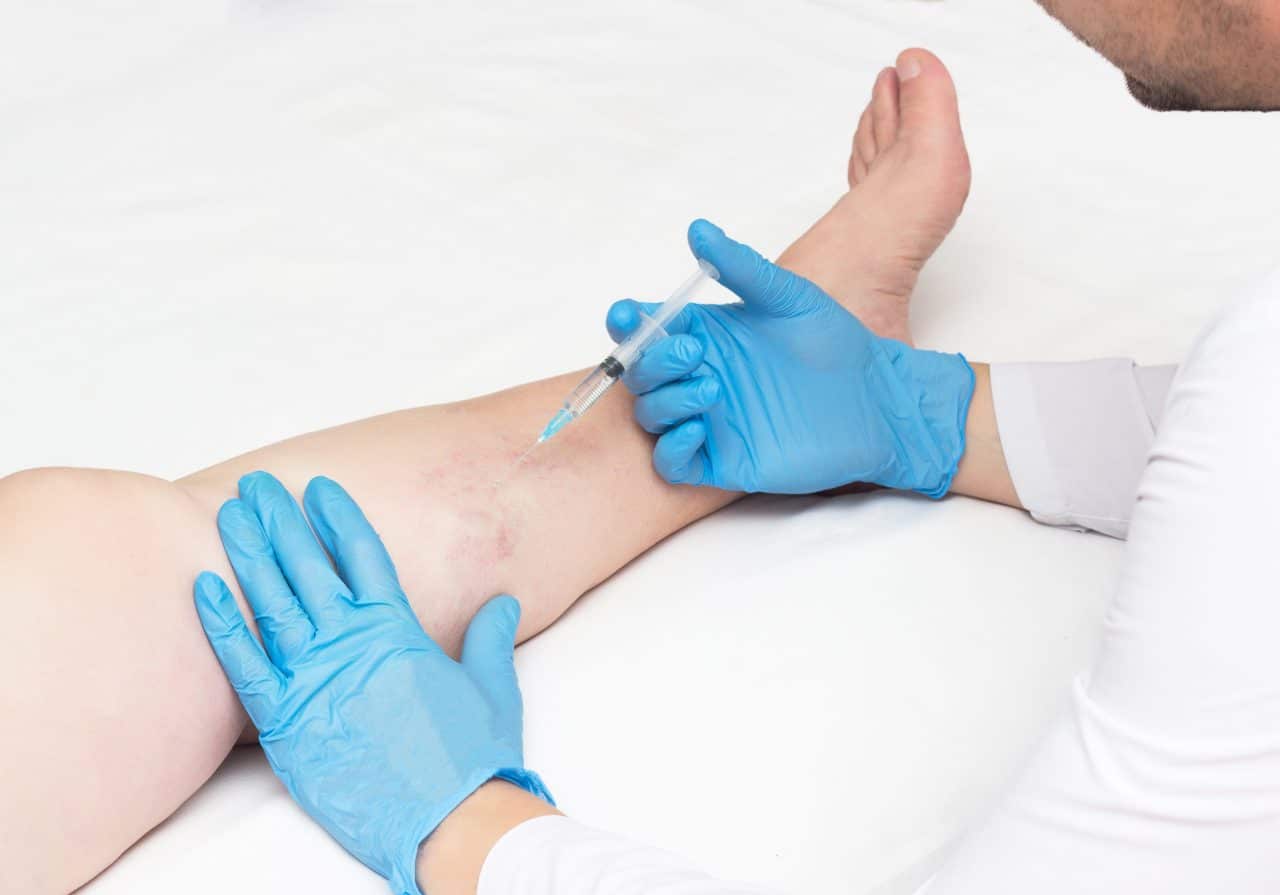
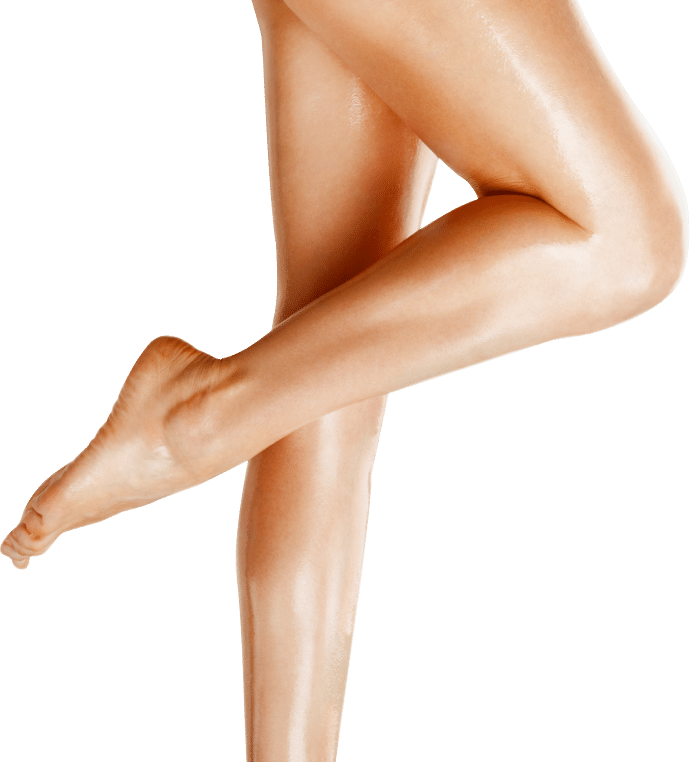
BOOK AN APPOINTMENT
Do you have any symptoms? Consult now with one of the Best Vein Specialist in New Jersey
CVI can also cause the veins to feel hard and rope-like. There may be a feeling of pressure or heaviness in the veins. The skin around the veins may be thickened, dry, or discolored. Ulcers can also develop on the legs. CVI is a progressive condition, which means that it will get worse over time if it is not treated. The best way to treat chronic venous insufficiency is with minimally invasive procedures that destroy or close the diseased saphenous vein responsible for your vein problems.
Why do women get spider veins?
There are many reasons why women get spider veins. One of the most common reasons is that women have a higher risk of developing spider veins due to the pressure that is placed on the veins. This pressure can come from pregnancy, obesity, standing for long periods of time, or even wearing tight clothing. Additionally, the vein walls in women are thinner than in men, which makes them more prone to developing spider veins.
What are the risk factors for vein disease?
There are several factors that can contribute to the development of varicose veins and other vein diseases.
- Age: Veins can weaken with age, making them more susceptible to vein disease.
- Gender: Women are more likely to develop varicose veins and spider veins due to the hormonal changes that occur during puberty, pregnancy, and menopause.
- Family history: If you have a family member with varicose veins, you may be more likely to develop them as well. This is likely due to inherited factors such as weak vein walls or valves.
- Obesity: Being overweight or obese puts extra pressure on the veins in your legs, which can lead to the development of varicose veins.
- Standing or sitting for long periods of time: This can cause the pooling of blood in the veins and lead to the development of varicose veins.
- Pregnancy: The increase in hormones and the extra weight of the baby can contribute to the development of varicose veins.
NJ Vein Doctors
Meet our team of New Jersey Vein Treatment Specialists
Vein Treatments are covered by most major medical insurances, including Medicare. Call us today to verify your insurance for FREE >
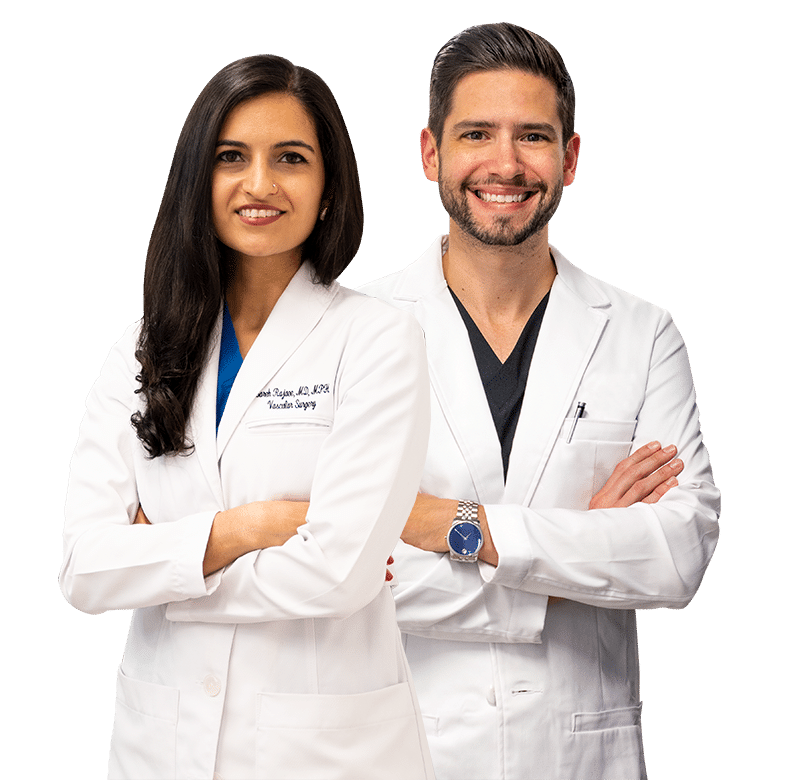
Meet our Team of Top Vein Specialists in New Jersey
Contact us
CALL US
Speak instantly with one of our team members; they will answer any questions you may have regarding insurance coverage, booking an appointment and our vein treatment locations. (973) 946-8082
BOOK APPOINTMENT
Visit our Book Appointment page and instantly request an appointment at the New Jersey vein center. We offer Free Insurance Verification before your appointment.
